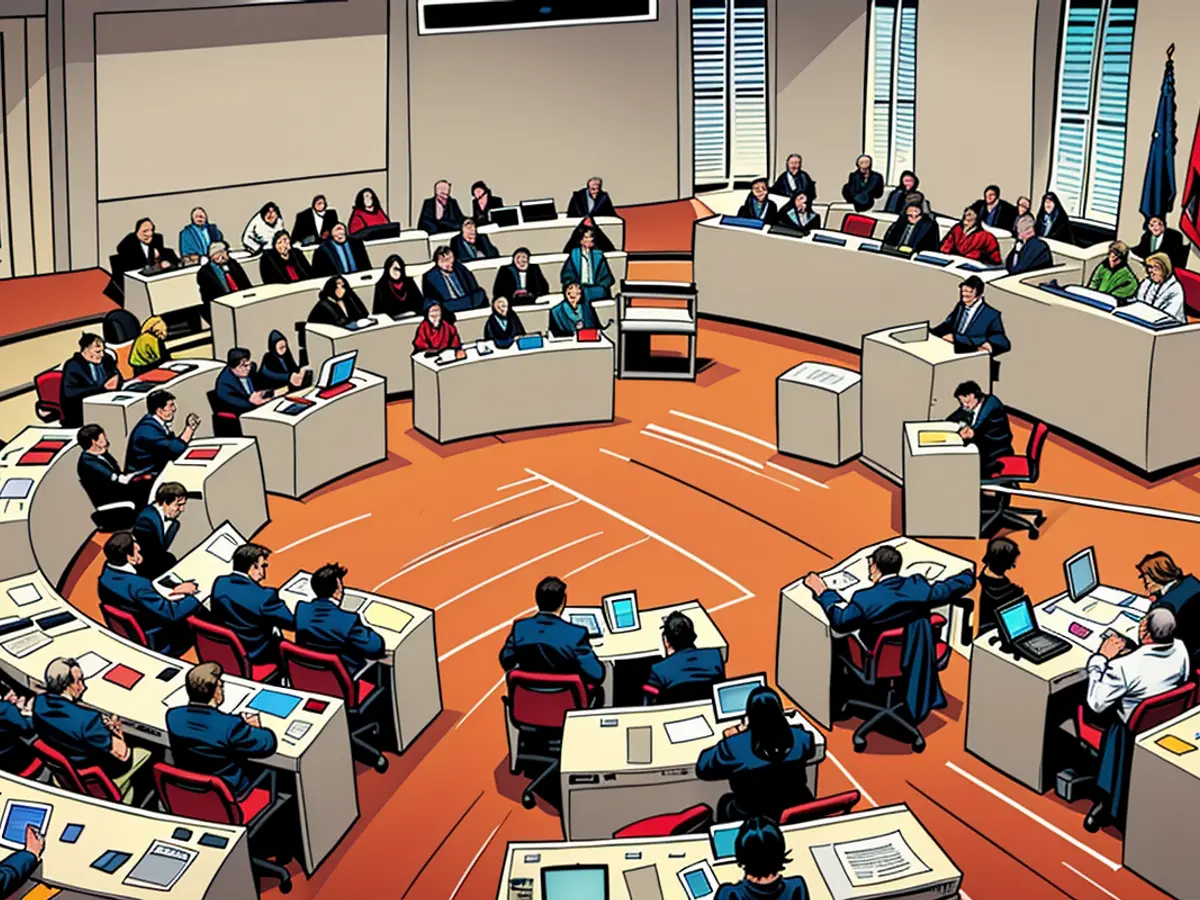Voting Processes - Other parties are establishing a barrier against the AfD.
All other parliamentary parties in Brandenburg agree that there should be a firewall against the AfD, even after the European and municipal elections. The Green Party's leader, Benjamin Raschke, stated, "It's the responsibility of all democratic parties to maintain this firewall." The SPD's Daniel Keller added that there would be no cooperation with the AfD.
The Left Party's leader, Sebastian Walter, shared the same sentiment, claiming, "There's no way for the Left party to cooperate with the AfD. They're antagonistic toward democracy." Walter did, however, acknowledge that the AfD acknowledges existing issues but has no solutions.
The CDU's parliamentary manager, Steeven Bretz, echoed the federal party's stance on no cooperation with the AfD. "Our stance regarding the AfD is crystal clear," he said. The Free Voters' leader, Péter Vida, sees a firewall as crucial. "Our demarcation position remains unchanged."
AfD faction leader Hans-Christoph Berndt pressed other parties to dismantle the firewall, arguing, "It's futile to continue governing against the strongest force in Germany, in the districts, and in the cities." He also demanded that the AfD be given the chairmanship as the strongest force in district councils or city councils. However, SPD leader Keller stressed that just because a party is the strongest force doesn't mean it automatically qualifies for leadership positions.
The AfD, with Brandenburg Constitutional Protection regarding their state association as a potential right-wing extremist organization, came out on top in both the European and municipal elections on Sunday. In the European poll, the AfD received 27.5% of the votes compared to the CDU, the Left-wing Alliance led by Sahra Wagenknecht, and the SPD. And in the municipal elections, the AfD won with 25.7% of the votes over the CDU and the SPD.
Read also:
- Despite the AfD's victory in both the European and municipal elections in Brandenburg, other parliamentary parties, including the EU, SPD, and CDU, maintain their firewall against the party.
- In light of the upcoming local elections in Brandenburg's municipalities, the political parties are highlighting their positions on cooperation with the AfD.
- Sebastian Walter, leader of the Left Party in Brandenburg, expressed his party's stance, stating that there is no way to cooperate with the AfD due to their antagonistic nature towards democracy.
- Meanwhile, Hans-Christoph Berndt, the AfD's faction leader, urged other parties to dismantle the firewall, arguing that it is futile to govern against the strongest force in Germany's districts and cities.
- In response, SPD leader Daniel Keller reiterated that just because a party is the strongest force doesn't automatically qualify it for leadership positions.
- The European Union and various German political parties, including the Green Party, the SPD, the Left Party, the CDU, and the Free Voters, are working to maintain a firewall against the AfD in Brandenburg's local elections.
- Brandenburg's local elections are significant as they will test the strength of political parties, particularly the AfD, and their ability to cooperate or maintain their firewall in various municipalities across the region.








